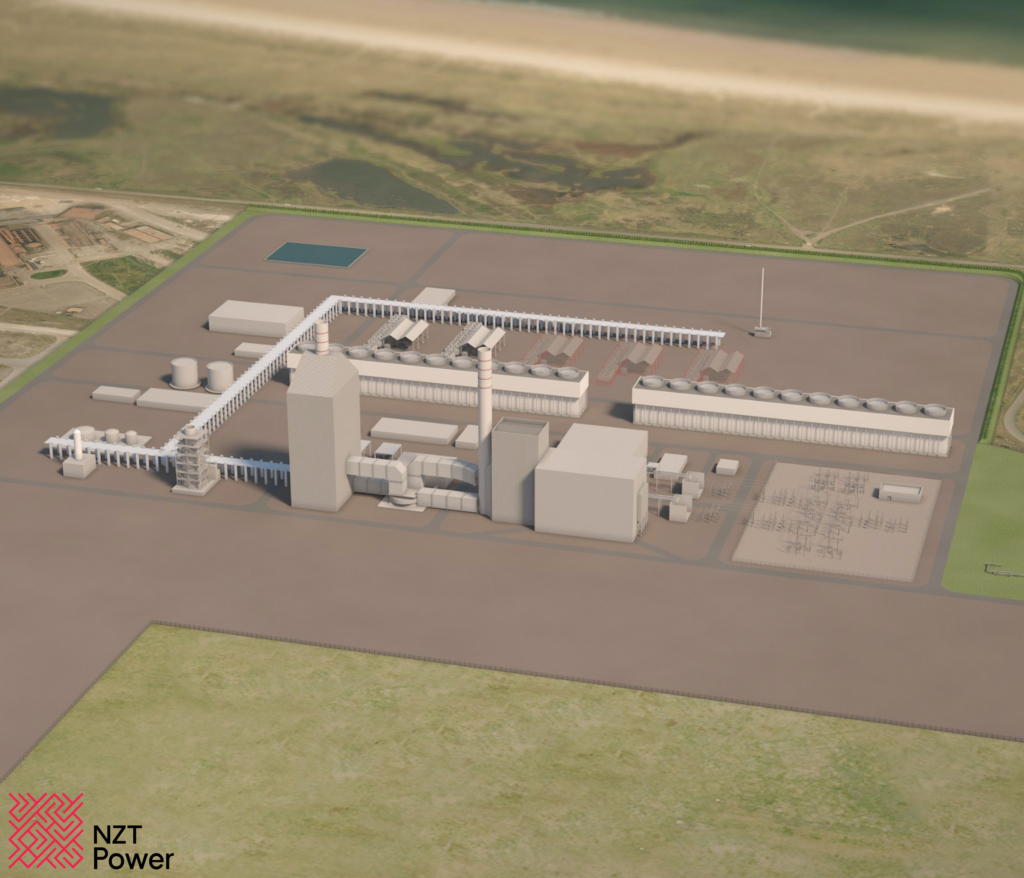Net Zero Teesside Power and Northern Endurance Partnership awarded development consent by UK Government
- Net Zero Teesside Power (NZT Power), which aims to be one of the world’s first commercial scale gas-fired power stations with carbon capture, has received development consent from UK Government.
- Development consent includes onshore CO2 gathering and transport infrastructure operated by the Northern Endurance Partnership (NEP).
- NZT Power, which aims to take a final investment decision in September 2024 or before, could generate up to 860 megawatts of low carbon electricity.
16 February 2024 – The planned Net Zero Teesside Power project, which aims to be one of the world’s first commercial scale gas-fired power stations with carbon capture, took another step forward after receiving development consent from the Secretary of State for Department for Energy Security and Net Zero (DESNZ) following a recommendation from the Planning Inspectorate (PINS).
Consent was granted following a joint application between NZT Power and the Northern Endurance Partnership. NZT Power is a combined-cycle gas turbine electricity generating station with an abated capacity of up to 860 megawatts output with carbon dioxide (CO2) capture plant. The NEP project includes a CO2 gathering network on Teesside to transport captured CO2 from industrial emitters; a CO2 gathering/booster station to receive the captured CO2 from the gathering network and from NZT Power; and the onshore section of a CO2 transport pipeline for the onward transport of the captured Net CO2 to the offshore Endurance store.
The granting of development consent, following several stages of consultation, comes after NZT Power was named on the Track 1 Negotiations Project List by DESNZ as part of Phase 2 of the Cluster Sequencing process for Carbon Capture Usage and Storage (CCUS). The project is now conducting negotiations for support through the relevant Business Models to enable a final investment decision in September 2024 or before.
NZT Power, a joint venture between bp and Equinor, could generate up to 860 megawatts of flexible, dispatchable low-carbon power equivalent to the electricity requirements of around 1.3 million UK homes. Up to 2 million tonnes of CO2 per year will be captured at the plant, and then transported and securely stored by the NEP in subsea storage sites in the North Sea
NEP – a joint venture between bp, Equinor, and TotalEnergies – is the CO2 transportation and storage provider for the East Coast Cluster (ECC). The Teesside onshore NEP infrastructure will serve the Teesside-based carbon capture projects – NZT Power, H2Teesside and Teesside Hydrogen CO2 Capture – that were selected for first connection to the ECC by DESNZ in March 2023 as part of the UK’s cluster sequencing process for carbon capture usage and storage (CCUS). Around 4 million tonnes of CO2 per year from these projects will be transported and stored from 2027.
Ian Hunter, Managing Director, NZT Power, said: “The granting of a Development Consent Order is an important step towards the development of the UK’s first full-scale integrated power and carbon capture project. We thank the planning inspectorate and the Secretary of State for their work during this process and look forward to taking the project forward to a planned final investment decision in September 2024 or before”.
Louise Kingham, bp’s UK head of country and senior vice president, Europe, said: “Receiving development consent is another major milestone for NZT Power. This first-of-a-kind project has the potential to deliver low-carbon flexible power equivalent to the electricity requirements of around 1.3 million UK homes and can help secure Teesside’s position at the heart of the country’s energy transition. These moments bring us closer to our goal of supporting the UK government’s commitment to fully decarbonize the power system in the UK by 2035 and will help to enable greater deployment of renewable power by providing flexible, dispatchable low-carbon electricity.”
Grete Tveit, Senior Vice President at Equinor said “This announcement is an important step forward for the decarbonisation of industrial regions in the North of England, which is essential if the Government is to meet its net zero targets whilst future-proofing industries and creating new jobs. It also demonstrates the increasing commitment of Equinor in this region, building on our long-standing energy relationship with the UK, which we hope to develop further through NZT Power, NEP and additional hydrogen and carbon capture projects in the East Coast Cluster.”
Gert Vermeiren, Managing Director for AECOM’s Environment, Water & Energy business in Europe, said: “With the potential to contribute significantly to the UK’s net zero target, we’re extremely proud to have been involved in the development of the UK’s first commercial scale, full chain Carbon Capture, Usage and Storage project. AECOM’s multidisciplinary team worked closely with the client from the very early stages of the project, combining consenting and engineering expertise, to support and engage stakeholders at all levels, and to help it reach this major planning milestone.”
Tees Valley Mayor, Ben Houchen said: “This is a welcome next step towards getting spades in the ground for this huge investment. Net Zero Teesside Power and the Northern Endurance Partnership can help make us the UK’s first decarbonised industrial cluster, pioneering clean energy and creating the good quality jobs of the future”.
Dr Bryony Livesey, Director, Industrial Decarbonisation Challenge – UKRI, said: “The positive development consent decision for Net Zero Teesside Power is a significant milestone in the UK’s industrial decarbonisation journey and further solidifies the nation’s position as a world leader in the transition to net zero. This announcement is a testament to what can – and is – being achieved up and down the country in the UK’s largest industrial clusters, as the private and public sectors collaborate, share knowledge and, together, advance industrial decarbonisation. Projects like Net Zero Teesside Power, that are supported by UKRI’s Industrial Decarbonisation Challenge, are bringing the UK closer to delivering its industrial net zero ambitions and are laying the groundwork for a stronger economy, energy security, innovation and community vitality.”
ENDS
